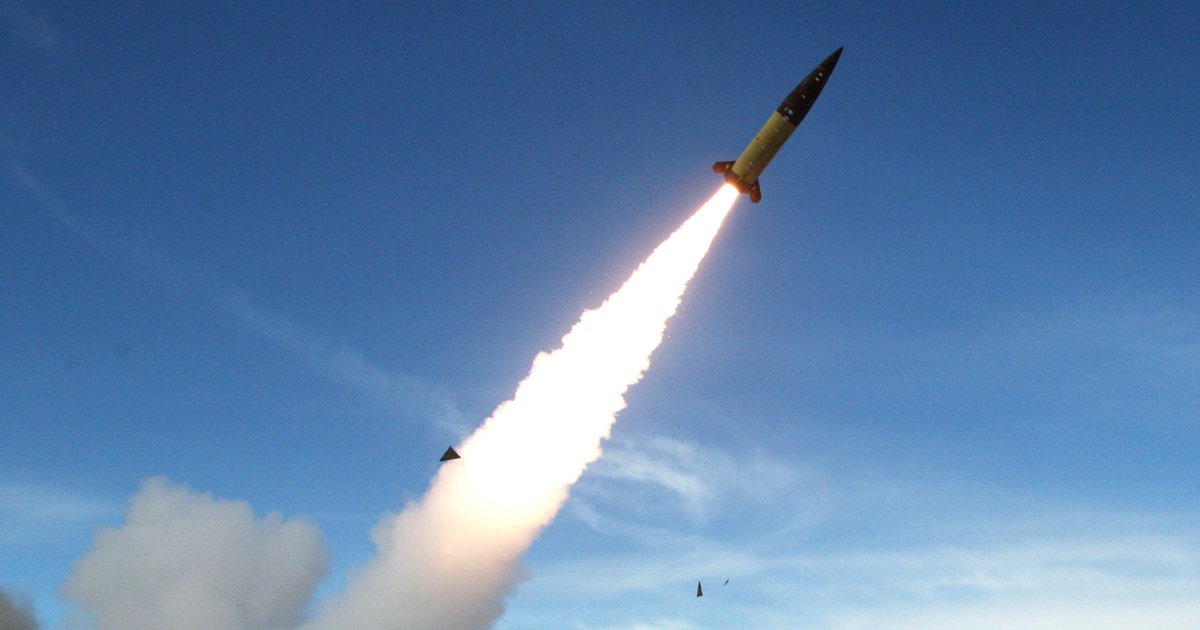
The U.S. provided Ukraine with powerful long-range ballistic missiles for the first time earlier this month, and its military has already used them twice in the last week against Russian forces, according to three U.S. officials.
The first strike was about 100 miles inside Crimea’s border on the morning of April 17, targeting a Russian military airfield, according to the officials. The Ukrainian military used the U.S.-provided Army Tactical Missile System, known as ATACMS, for the second time Tuesday night, targeting Russian forces east of the southeastern Ukrainian town of Berdyansk in Zaporizhzhia Oblast, officials said.
The Biden administration has not previously acknowledged sending ATACMS to Ukraine, but a National Security Council spokesperson confirmed that the U.S. has provided them. They were part of the $300 million military aid package unveiled March 12.
The NSC spokesperson said the administration did not reveal at the time that it was sending Ukraine the long-range missiles for operational security reasons. President Joe Biden directed his national security team to send the ATACMS to Ukraine secretly, the spokesperson said.
The powerful missiles have a range up to 300 kilometers (about 187 miles) and allow Ukraine to strike the Russian military throughout Crimea and in occupied parts of eastern Ukraine that had been difficult to reach. The U.S.-provided ATACMS included both warheads with cluster munitions and with unitary blast fragmentation.
The revelation that Ukraine has used the long-range ATACMS came as Biden signed into law a foreign aid package providing billions of dollars in weapons and support to Ukraine, Israel and Taiwan. The measure, which will provide about $61 billion for Ukraine, was hung up for months due to opposition in the Republican-led House.
The Biden administration was already preparing a military aid package for Ukraine worth more than $1 billion, according to two U.S. officials familiar with the planning. It will include a range of equipment that the U.S. has already provided Ukraine, including ammunition, stinger missiles, artillery rounds, infantry fighting vehicles and other military equipment, the officials said.
NBC News was first to report in February that the Biden administration was planning to provide ATACMS to Ukraine.
Late last year, the U.S. began to supply Ukraine with the missiles, but until now they had limited the shipments to older medium-range models amid concerns that taking the longer-range ones from U.S. stockpiles could endanger military readiness. In early February, the U.S. Army presented a plan to buy new ATACMS directly from industry and send ones in storage to Ukraine, and the Biden administration approved.
The White House also concealed the decision to send the medium-range ATACMS in 2023, acknowledging it only after Ukraine used them in combat. Administration officials also cited operational security as the reason for its secrecy.
The Biden administration had resisted sending the long-range missiles over the past two years because officials worried Ukraine would use them to strike inside Crimea or Russia and prompt Russian President Vladimir Putin to escalate the conflict. White House and Pentagon officials have expressed similar concerns about other sophisticated weapons systems but have repeatedly decided to provide them to Ukraine.
But after multiple warnings to Russia not to use long-range weapons inside Ukraine and to stop attacking Ukrainian energy grids went unheeded, the White House decided to give Ukraine the same capabilities.
An NSC spokesperson said Biden directed his team to send the ATACMS after North Korea provided Russia with ballistic missiles that have now been used in Ukraine and after Russia has repeatedly attacked civilian infrastructure inside Ukraine.
The U.S. imposed limitations on the use of the long-range systems, including that they cannot be used to strike inside Russia and must be used within sovereign Ukrainian territory, which, according to the U.S. government, includes Crimea.
Testifying before the House Appropriations Subcommittee on Defense last week, Defense Secretary Lloyd Austin warned that without funding for more weapons to Ukraine, Russia is gaining the upper hand.
“We’re seeing the Ukrainians be challenged in terms of holding the line — they’re doing a very good job, a credible job — but in order to continue to do that, they’re going to need the right materials, the right munitions, the weapons to be able to do that,” Austin said.
An NSC spokesperson said more military aid will provide a boost to Ukraine on the battlefield, but it cannot turn the tide of the war alone. Ukraine is running low on munitions and equipment, while Russia continues to launch waves of drones and missiles, the spokesperson said.
Speaking on NBC News’ “Meet the Press” on Sunday, Ukrainian President Volodymyr Zelenskyy said the new aid will give the country a chance at “victory” as it defends itself from Russia.
“I think this support will really strengthen the armed forces, I pray, and we will have a chance at victory if Ukraine really gets the weapons system, which we need so much, which thousands of soldiers need so much,” he said.






